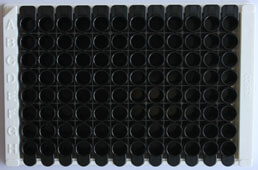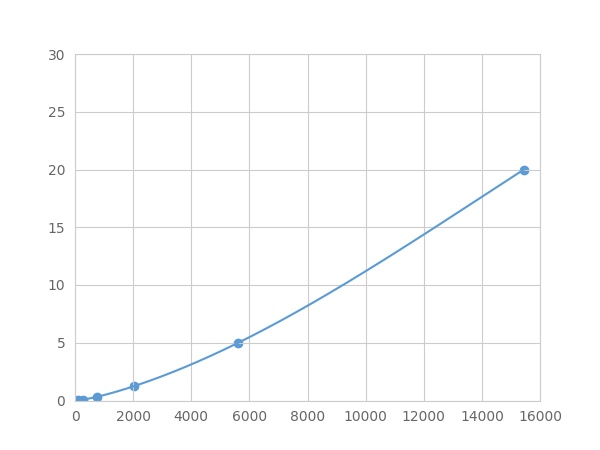Packages (Simulation)

Reagent Preparation

Image (I)
Image (II)
Certificate


Multiplex Assay Kit for Transferrin (TF) ,etc. by FLIA (Flow Luminescence Immunoassay)
TRF; Siderophilin; Serotransferrin; Beta-1 metal-binding globulin
(Note: Up to 8-plex in one testing reaction)
- Product No.LMC036Po
- Organism SpeciesSus scrofa; Porcine (Pig) Same name, Different species.
- Sample TypeSerum, plasma and other biological fluids
- Test MethodDouble-antibody Sandwich
- Assay Length3.5h
- Detection Range0.02-20ng/mL
- SensitivityThe minimum detectable dose of this kit is typically less than 0.007 ng/mL.
- DownloadInstruction Manual
- UOM 8Plex 7Plex 6Plex 5Plex 4Plex 3Plex 2Plex1Plex
- FOB
US$ 524
US$ 544
US$ 575
US$ 615
US$ 655
US$ 716
US$ 806
US$ 1008
Add to Price Calculator
Result
For more details, please contact local distributors!
Specificity
This assay has high sensitivity and excellent specificity for detection of Transferrin (TF) ,etc. by FLIA (Flow Luminescence Immunoassay).
No significant cross-reactivity or interference between Transferrin (TF) ,etc. by FLIA (Flow Luminescence Immunoassay) and analogues was observed.
Recovery
Matrices listed below were spiked with certain level of recombinant Transferrin (TF) ,etc. by FLIA (Flow Luminescence Immunoassay) and the recovery rates were calculated by comparing the measured value to the expected amount of Transferrin (TF) ,etc. by FLIA (Flow Luminescence Immunoassay) in samples.
| Matrix | Recovery range (%) | Average(%) |
| serum(n=5) | 80-89 | 85 |
| EDTA plasma(n=5) | 81-91 | 85 |
| heparin plasma(n=5) | 81-97 | 87 |
Precision
Intra-assay Precision (Precision within an assay): 3 samples with low, middle and high level Transferrin (TF) ,etc. by FLIA (Flow Luminescence Immunoassay) were tested 20 times on one plate, respectively.
Inter-assay Precision (Precision between assays): 3 samples with low, middle and high level Transferrin (TF) ,etc. by FLIA (Flow Luminescence Immunoassay) were tested on 3 different plates, 8 replicates in each plate.
CV(%) = SD/meanX100
Intra-Assay: CV<10%
Inter-Assay: CV<12%
Linearity
The linearity of the kit was assayed by testing samples spiked with appropriate concentration of Transferrin (TF) ,etc. by FLIA (Flow Luminescence Immunoassay) and their serial dilutions. The results were demonstrated by the percentage of calculated concentration to the expected.
| Sample | 1:2 | 1:4 | 1:8 | 1:16 |
| serum(n=5) | 92-99% | 90-104% | 81-92% | 90-99% |
| EDTA plasma(n=5) | 88-102% | 95-103% | 97-105% | 78-101% |
| heparin plasma(n=5) | 84-101% | 82-103% | 84-102% | 96-105% |
Stability
The stability of kit is determined by the loss rate of activity. The loss rate of this kit is less than 5% within the expiration date under appropriate storage condition.
To minimize extra influence on the performance, operation procedures and lab conditions, especially room temperature, air humidity, incubator temperature should be strictly controlled. It is also strongly suggested that the whole assay is performed by the same operator from the beginning to the end.
Reagents and materials provided
| Reagents | Quantity | Reagents | Quantity |
| 96-well plate | 1 | Plate sealer for 96 wells | 4 |
| Pre-Mixed Standard | 2 | Standard Diluent | 1×20mL |
| Pre-Mixed Magnetic beads (22#:TF) | 1 | Analysis buffer | 1×20mL |
| Pre-Mixed Detection Reagent A | 1×120μL | Assay Diluent A | 1×12mL |
| Detection Reagent B (PE-SA) | 1×120μL | Assay Diluent B | 1×12mL |
| Sheath Fluid | 1×10mL | Wash Buffer (30 × concentrate) | 1×20mL |
| Instruction manual | 1 |
Assay procedure summary
1. Preparation of standards, reagents and samples before the experiment;
2. Add 100μL standard or sample to each well,
add 10μL magnetic beads, and incubate 90min at 37°C on shaker;
3. Remove liquid on magnetic frame, add 100μL prepared Detection Reagent A. Incubate 60min at 37°C on shaker;
4. Wash plate on magnetic frame for three times;
5. Add 100μL prepared Detection Reagent B, and incubate 30 min at 37°C on shaker;
6. Wash plate on magnetic frame for three times;
7. Add 100μL sheath solution, swirl for 2 minutes, read on the machine.
GIVEAWAYS
INCREMENT SERVICES
| Magazine | Citations |
| PLoS ONE | Identification of Altered Plasma Proteins by Proteomic Study in Valvular Heart Diseases and the Potential Clinical Significance PubMed: PMC3754973 |
| Physiological research | The Labile Iron Pool in Monocytes Reflects the Activity of the Atherosclerotic Process in Men with Chronic Cardiovascular Disease pubmed:27782743 |
| Journal of Proteomics | Putative salivary biomarkers useful to differentiate patients with fibromyalgia Pubmed:29654921 |
| Journal of Clinical Medicine | Urinary Proteomics for the Early Diagnosis of Diabetic Nephropathy in Taiwanese Patients Pubmed: 30486327 |
| The Nigerian postgraduate medical journal the official publication of the National Postgraduate Medical College of Nigeria | Assessment of iron deficiency anaemia and its risk factors among adults with chronic kidney disease in a tertiary hospital in Nigeria |
| Haematologica | New thiazolidinones reduce iron overload in mouse models of hereditary hemochromatosis and β-thalassemia Pubmed: 30792208 |





